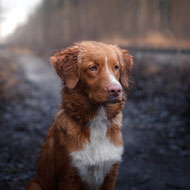
MPs debate petition for pet theft to be reclassified to a specific crime
Calls to reclassify the theft of a pet to a specific crime in its own right have been rejected by the government.
On Tuesday (2 July), MPs gathered in Westminster to debate the legislation around pet theft in England and Wales, in addition to the penalties handed out to those that are prosecuted for this crime.
The debate was triggered by a petition which has been signed by more than 106,000 people. It said that enforcement of existing laws do not currently act as a deterrent or fit the crime itself.
In the debate, MPs expressed the ‘outrage’ of their constituents that more than 2,000 dogs a year are stolen, yet only five per cent of thefts lead to a conviction.
They called for a change in the law so that people who steal dogs receive proper punishment. However, envionment minister George Eustice said the government is 'not convinced’ a change in the law is needed because the Theft Act 1968 ‘provides sufficient sanctions’.
"We have had a very thoughtful and detailed debate that I believe does justice to the 106,000 people who signed the petition," he said. "Although the Government are not convinced for change, I hope that, through those undertakings, I have been able to demonstrate that we intend to do more work and gather more evidence in this area."
The Act allows for a maximum of seven years’ imprisonment for theft. However, pets are classified as property and penalties are based on the monetary value of the dog. As such, custodial sentences are rarely enforced and offenders see pet theft as a high-reward, low-risk crime.
Commenting, Dogs Trust senior campaigns officer Lee Paris said: “We are pleased the topic of dog theft has been discussed in Parliament. It is a step in the right direction, but there is significantly more action needed for our four-legged friends to be viewed by the law as the family members they are, instead of merely a possession.
“We know that dogs truly are a part of their owners’ families, and it can be incredibly traumatic when a dog is stolen. Currently, the penalty for dog theft is based on the monetary value of the dog as a possession, with little to reflect the emotional anguish a family experiences when their dog is stolen.”
He added that Dogs Trust would like the Sentencing Council to toughen its guidelines so that all cases of companion animal theft are considered a category 2 offence.
“This would mean those prosecuted would be more likely to receive a custodial sentence,” he said.
Following the debate, Conservative MP Ross Thomson presented a new Pet Theft Bill to the House of Commons that is due to receive a second reading in October. The Bill would make pet theft a crime in its own right and require that sentencing is appropriate to the level of emotional harm caused by the theft.
Commenting on the Bill, Prit Powar, head of Direct Line Pet Insurance, said: “The public support for tougher laws and sentencing for offenders who steal pets has been phenomenal and we are happy to put our support behind this bill.
“Our research among UK police forces found that five dogs a day are reported stolen across the UK and just one in every five are returned to their owner. The emotional trauma endured by those who have had a dog stolen needs to be reflected in the sentences handed down.”



 The Veterinary Medicines Directorate (VMD) is inviting applications from veterinary students to attend a one-week extramural studies (EMS) placement in July 2026.
The Veterinary Medicines Directorate (VMD) is inviting applications from veterinary students to attend a one-week extramural studies (EMS) placement in July 2026.